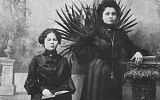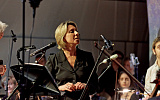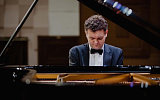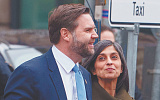Some would have it as the biggest surprise so far this year in Russian politics. Others call it a tragedy (see Boris Kagarlitsky"s Farewell to Primakov). By Russian standards, indeed, this is an unusual set of circumstances.
For the first time since his re-election three years ago, President Boris Yeltsin faces a credible opposition movement, led by tough-minded pragmatists whom he cannot demonize, either to the western world or to his own voters, as communists and fascists.
The decision by Yevgeny Primakov, a former prime minister, to join Moscow Mayor Yury Luzhkov"s party, Fatherland, which had earlier formed an alliance with a regional governors" group, All Russia, could make the movement virtually unbeatable, if-and this still is a big if-the forthcoming parliamentary and presidential elections are held as scheduled (next December and June, respectively) and conducted more or less fairly.
Yet, the truth is that Primakov"s move is neither a surprise nor a tragedy. It is a sensible, long-anticipated and much-needed step.
Nor did it come unannounced. Mikhail Gorbachev, the Soviet Union"s last president, has long championed the idea. Back in February 1999 he wrote in the Nezavisimaya Gazeta that "Primakov"s and Luzhkov"s programs are quite similar. Both stress the need to defend Russian national interests and to improve the living conditions of millions of Russians." "Many governors are ready to support Primakov," Gorbachev said. "The conditions for forming a broad political alliance that will guarantee development and stability in Russia are there."
Ruslan Aushev, one of the founding fathers of the All-Russia movement and the president of Ingushetia (an autonomous republic neighboring Chechnya), said last May that the bloc "may support Primakov in the 1996 presidential election." "Yevgeny Primakov," Aushev said, "will be acceptable not only to the majority of centrist politicians but to others as well."
Alexander Dzasokhov, president of North Ossetia (another republic in the North Caucasus), was a bit more specific. "The best thing for Russia would be consolidation of all political forces untainted by corruption, such as Fatherland, All Russia, and the Agrarian Party, into a single political movement led by Yevgeny Primakov. Only someone like Primakov can be the guarantor of stability in this country," Dzasokhov said July 20, 1999, at an Itar-Tass press conference.
Luzhkov himself spoke on a several occasions about the need to form an alliance with Primakov.
The similarities between the two men"s ideologies are many. Luzhkov has cast himself as a khozyaystvennik, an able administrator unburdened by dogma of any kind and whose chief skill is managerial-no small accomplishment in post-Soviet Russia.
Primakov"s main asset also seems to be the lack of any strongly held principles-and he has shown himself equipped with a useful ability to tap the wheels of the government and make them go round roughly as desired.
Like the mayor of Moscow, Yevgeny Primakov is coming across as a guarantor of stability and a moderate nationalist.
The question is why would Primakov-who rates in the most recent public opinion polls for presidency at 22 percent (to Luzhkov"s nine percent)- need an alliance with the mayor of Moscow, or anyone else for that matter?
To put it simply, Primakov has lots of ideas (mostly good, many vague); but it is strapped for cash, and has no organization of his own. Luzhkov does.
As things stand, this pair heads the most formidable electoral front, which also includes Mintimer Shaimiyev, president of Tatarstan, a republic within Russia, and most of the Agrarian Party, once allied to the Communists and which normally takes about 8 percent of the national vote.
Mikhail Lapshin, the Agrarians' leader, made it clear he was tired of the Communists' unwillingness to treat them as a genuine partner. "In four years the Communists have not supported a single one of our candidates in the governorship races, although they have twice supported people from Vladimir Zhirinovsky's Liberal Democratic Party," he said.
That combination, together with quite a strong network of alliances in the regions, many of whose governors like Mr. Luzhkov"s reputation for "getting things done," should appeal to a broad range of voters. Its most visible weakness is that only one national television channel gives it fair play. Corruption investigations into Moscow city"s crony-ridden and murky finances may embarrass Mr. Luzhkov"s friends in the months ahead, but he has plenty of ammunition of his own.
Mr. Primakov does not use the term "center-left," preferring to describe the new alliance as one made of gosudarstvenniki or "advocates of a strong state."
The movement's platform, outlining "One Hundred Laws for Russia," has a recognizable social-democratic content with its calls for a national minimum wage and the indexation of pensions. But it recognizes how much the old system of free education and health care has collapsed.
The Fatherland-All Russia alliance is the nearest to a center-left movement that Russia has legally had since the Mensheviks were pushed aside in the wake of the revolution more than eighty years ago.
"We don't want to go back to the command system which went bankrupt, nor do we want to nationalize everything, but we do want to use the levers of the state to regulate the economy in the interests of growth, honest business, and the welfare of tax-payers," Mr. Primakov said.
Mr. Luzhkov stated that "the country needs a course correction. We cannot solve its problems only according to the prescriptions of the IMF, which regards Russia as a test-bed for its experiments."
The platform calls for a major reduction of the president's power and a transfer of authority to a government reflecting the majority in the Duma, the lower house of parliament. It wants the constitution changed so that the president ceases to be the country's chief executive.
An independent committee of doctors should be set up to decide when the president is unfit to go on serving. "A sick person is not always the best judge of his own health," the manifesto gingerly says.
Many Russians are worried that Mr. Yeltsin will never give up power for fear of seeing himself and his family prosecuted for corruption. The Fatherland-All Russia manifesto calls for a new law to guarantee the president's status after he leaves office.
Most important, Mr. Yeltsin himself seems genuinely determined to stick to the letter, if not the spirit, of the law. But his popularity hovers at about three percent. Popular, democratic, reformist politicians want to distance themselves from the president; one calls association with him the "kiss of electoral death."" The idea seems to be to build up an alternative group of regional leaders, based on Sergei Shoygu, the popular chief of the ministry of emergency situations, and Dmitri Ayatskov, the governor of Saratov.
But the chances that an incoherent new outfit like this would do well in the parliamentary election have so far looked slim. The Kremlin lot"s best hope may be that, by weakening Fatherland, they may help other parties less threatening to themselves, for instance Yabloko (a center-left group led by Grigory Yavlinsky) and Right Cause (a much weaker group of well-known-and mostly unpopular-economic reformers, such as Anatoly Chubais).
There could be more such stunts. But none will alter two big problems for Mr. Yeltsin and the members of his court. They are extremely unpopular, and the chances of their holding on to power constitutionally grow more remote by the day.





























